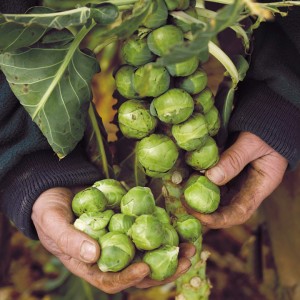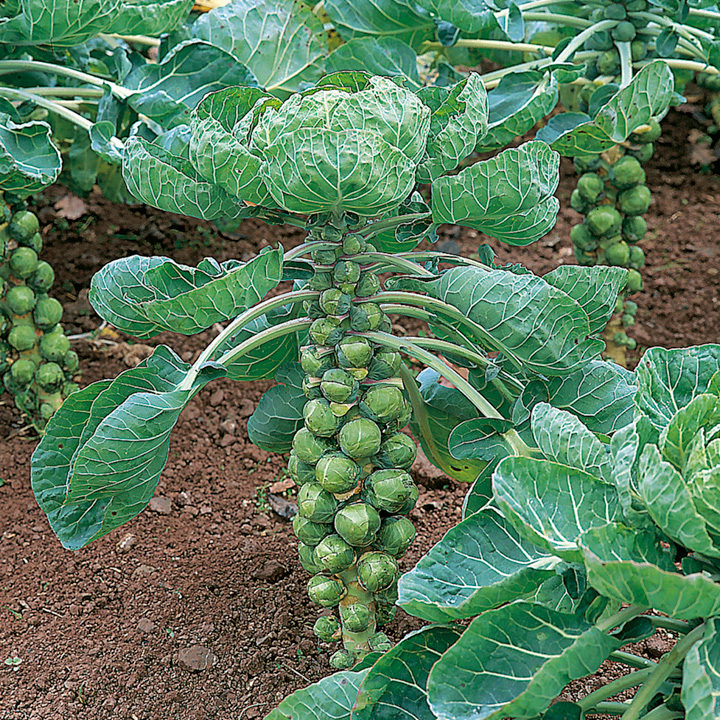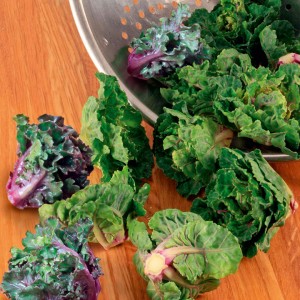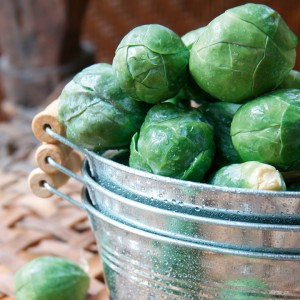Last Updated on January 20, 2023 by the Dobies Horticultural Team
Love them or hate them Brussels sprouts are not just for Christmas. These interesting and, some would say, tasty little veggies have been around for centuries and show no sign of going away.
Some interesting facts:
Sprouts developed from wild cabbage in Pakistan and Afghanistan
Over 5,000 years ago Chinese physicians used to prescribe sprouts as a cure for many ailments, including bowel problems
Sprouts became very popular in Brussels in the 16th century – hence their name
Sprouts were first introduced to England during the 19th century.
Dobies sell 12 different varieties of sprout.
Captain Cook made his crew eat sprouts, lemons and oranges to make sure that they didn’t develop scurvy.
Sprouts are not just green. Red and purple varieties are also available.
 Sprouts contain high levels of vitamins A and C, folic acid and dietary fibre.
Sprouts contain high levels of vitamins A and C, folic acid and dietary fibre.
An 80g serving of sprouts contains 4 times more vitamin C than an orange.
Flower sprouts are a cross between Brussels sprouts and kale and are perfect for stir-fries.
When preparing sprouts some cooks make a cross in the bottom. One school of thought is that this helps them to cook more evenly but others think the cross is to keep the devil out!
Along with cabbages, broccoli and other brassicas Brussels sprouts contain sulphur as a deterrent against animals eating their leaves. This sulphur creates the slightly bitter taste that some people hate and other people love. It also creates the rotten egg smell you get when sprouts are overcooked plus that other unattractive smell that sprouts tend to create!
Great for those trying to lose some weight, a 100g of sprouts equals just 45 calories.
The heaviest sprout on record weighed in at 8.3kg.



